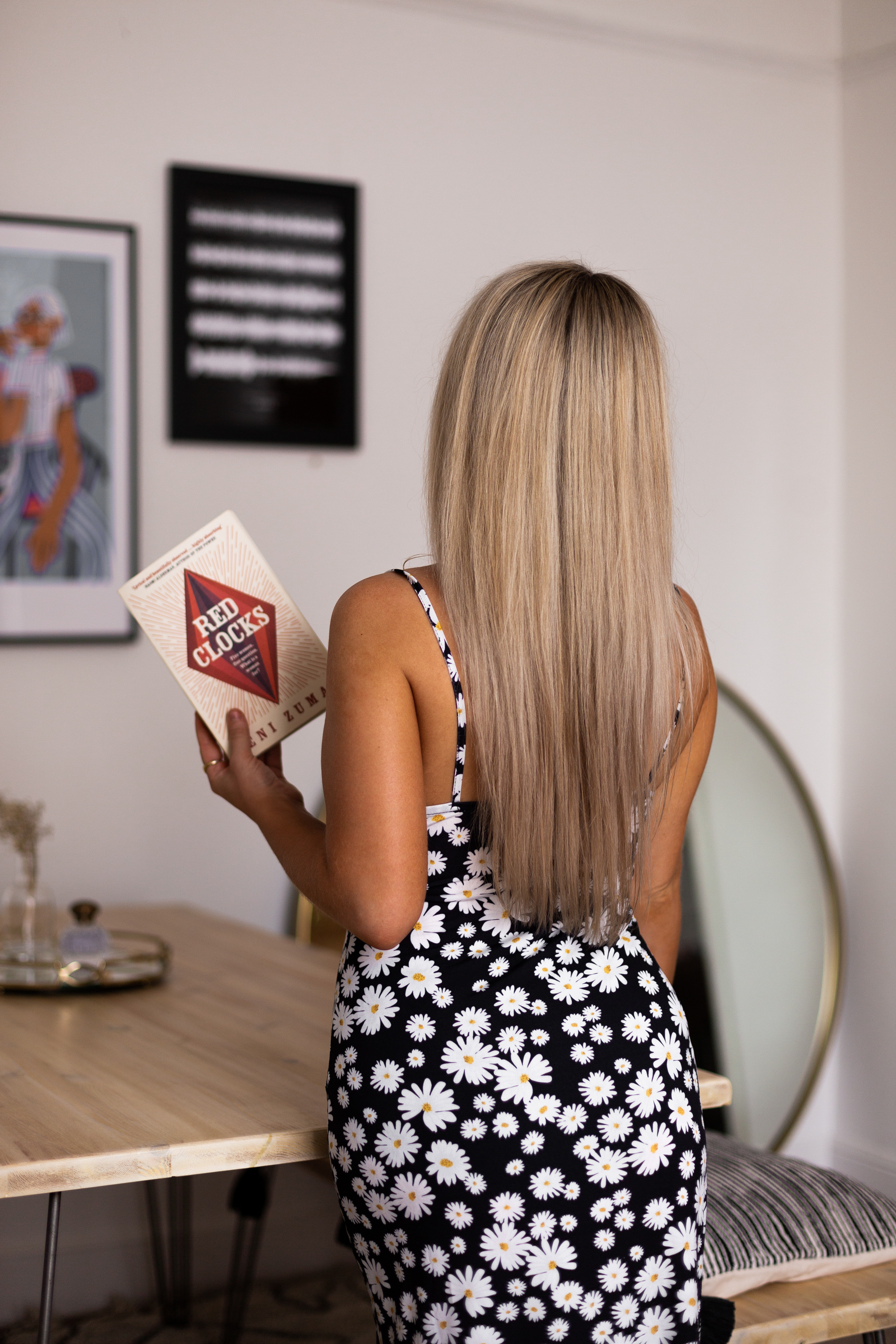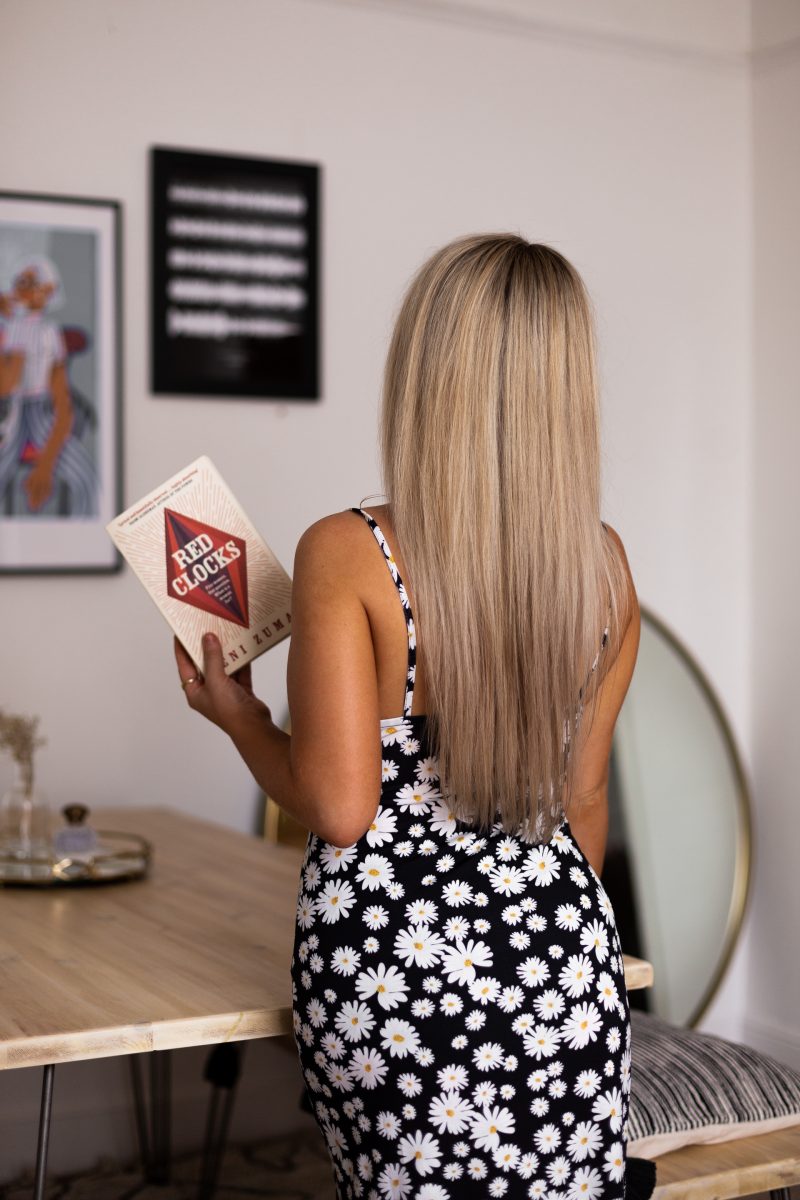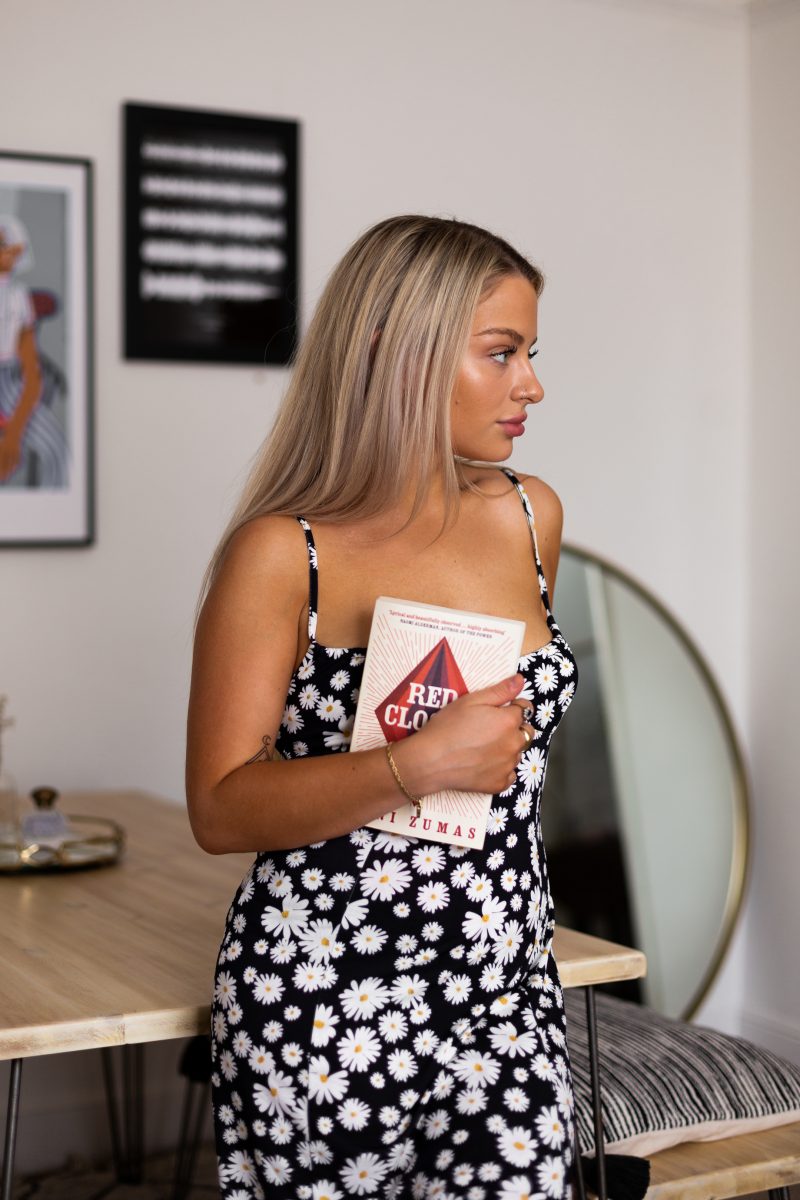Well July went by in a flash, huh? Here I was, all ready to write this post with an opening gloat about how unusually prepared I am being ahead of the end of the month, and then BAM: it’s August 1st. I have been well and truly played by my poor calendar-keeping skills.
Nonetheless, welcome to July’s Book Review! *and the crowd goes wild* This month we only have two titles to review because I was a bit lacklustre with my regular reading routine; I find I have to be very strict with myself in saying ‘right, get 40 pages done today’, otherwise I all too easily fall back on Eastenders and a glass of wine (when did my life get so glamorous?).
But we do have two good ones this month. One non-fiction - Nimko Ali’s What We’re Told Not to Talk About (But We’re Going to Anyway) - and one fiction - Leni Zumas’ Red Clocks. Let me know if you’ve read either, and if so, what you thought.
I feel a little book club coming on here, don’t you?
What We’re Told Not To Talk About (But We’re Going To Anyway) - Nimko Ali
The inside-sleeve blurb of Nimko Ali’s debut declares: “this book is a call to arms for all women to reclaim the narrative around their bodies and to refuse to bow to taboos that keep us silent. There is no such thing as oversharing”. Ali - and the myriad of varied and complex women she speaks to - illuminates real womens' experiences from often marginalised and ignored walks of life (homeless women, refugees, women experiencing menopause and others who have been subjected to FGM). Ali offers a platform for such voices to be heard and resonated with, exploring a plethora of fanny themes such as periods, first orgasms, pregnancy and ‘the big change’ (she says her preferred term is ‘fanny’ - mine is ‘vagina’, although ‘pussy’ is definitely growing on me. Keiran calls her the ‘jade palace’ when he wants something from me). What is beautiful about this book is the diversity from which the stories are requested; we turn the page from a woman who has chosen to have an abortion to a woman who has suffered a miscarriage, and yet both experiences are respected and honoured and reported without judgement. What We’re Told Not To Talk About (But We’re Going To Anyway) is a necessary reeducation on the realities of women’s lives and the breaking of archaic taboos which continue to bind us, but it’s also a big sister saying that it’s okay to be who you are and to live your truth.
Did I enjoy it? Yes, Nimko Ali radiates wit and intellect and this is infused in every word she writes. In fact, I wish the book featured more of her words - I felt like there wasn’t enough of her and her story, and once the experiences of the other women started feeding through, we only got to hear from her in snippets and soundbites and I would love to have read more of her personal interpretations. I am grateful for the education that all the stories have given me, though; it’s very easy for me to discuss a sexuality and body that I know (i.e. as an able-bodied, petite straight white woman with financial security and a long-term relationship), but reading the experiences of so many others has offered me a wealth of new perspectives, and that’s such a gift. What our bodies mean to us, how our bodies serve us and how we interpret our sexuality as a result of that can be so different, and hearing other women’s voices in situations that are so far removed from my own has made me better appreciate both what sets us apart, and what brings us together. On a practical level, I found the syntax was a little jumpy at times. I had to occasionally re-read to understand what the sentence was trying to say, but ultimately you’re not coming to this book for it’s presentation, you’re coming to it for the value in the stories. Read it, and then lend it. 3 stars.
Red Clocks - Leni Zumas
Situated in modern America (an ironic phrase?), Leni Zumas’ of-the-moment Red Clocks explores the consequences that law and politics have on policing women’s bodies. In a world that feels tangibly and terrifyingly real, four women are confronted with a facet of motherhood that they are not able to control. IVF, abortion, the ability to adopt as a single person and other reproductive rights have all been made illegal, and the women must navigate the ticking-time-bomb of this landscape in order to grasp on to the last shreds of autonomy and governance they have over their own bodies. All four women approach their difficulty from divergent directions (Ro is a forty year old teacher desperate to become a mother, despite being unsuccessful with IVF and soon ineligible to adopt as a single person; Mattie is a bright and talented teenager with an unwanted pregnancy, who faces the prospect of a murder charge if she seeks an abortion; Susan is squashed by an unhappy marriage and her identity as Mum, and Mum only; and Gin offers natural remedies to aid women’s health issues, but becomes the subject of a legal battle when she assists in aiding abortions), but at the core they are united by the same thing: the snatched-away right to have authority over their decisions and physicality. Red Clocks is a struggle for the base rights that women deserve, and an exploration of how quickly the cultural consciousness can change with devastating effect.
Did I enjoy it? I know I’m predisposed to enjoy any iteration of dystopian feminist literature, but I really loved this. Zumas is a beautiful writer and adeptly communicates the frustration, pain and deep, deep yearning that each woman feels, portraying a reality in which each must either minimise themself to adhere to the system or risk facing monumental consequences. And their crimes? Desiring ownership over their choices and bodies. She demonstrates how easy it is for a society to suddenly switch its moral compass, and how dramatically that fucks with the lives of those affected, whilst everybody else is able to continue as normal. It’s heartbreaking and powerful in equal measure, and considering there are so few countries in which abortion is entirely legal and being part of a cultural climate where our autonomy is continually being recentred for debate, it’s scary too. This world isn’t a thousand years off - it’s right on our doorstep. My only criticism would be that I’d like to have seen how the aftermath unfolded and where the women’s lives took them after each turning point, but I honestly couldn’t read this quick enough and it has been one of my highlights of the year. 4 stars.
 Idle Waters: Quaint Cottage Countryside Retreat
Idle Waters: Quaint Cottage Countryside Retreat
 Why Solo Travel & Why Now? What Solo Trips Mean To *Us*
Why Solo Travel & Why Now? What Solo Trips Mean To *Us*
 Unplugged Retreat: A ‘No Phones’ Countryside Break
Unplugged Retreat: A ‘No Phones’ Countryside Break
 New Home Tour
New Home Tour



